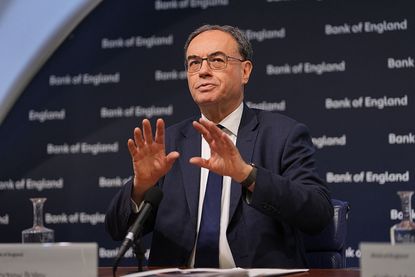UK Economy
The latest news, updates and opinions on UK Economy from the expert team here at MoneyWeek
Explore UK Economy
-

When is the next Bank of England base rate meeting?
The Bank of England held interest rates at 3.75% in February 2026. When is the next Monetary Policy Committee meeting and will interest rates fall further this year?
By Daniel Hilton Last updated
-

"Botched" Brexit: Should Britain rejoin the EU?
Brexit did not go perfectly nor disastrously. It’s not worth continuing the fight over the issue, says Julian Jessop
By Julian Jessop Published
-

'AI will change our world in more ways than we can imagine'
Interview Rob Arnott of Research Affiliates talks to Andrew Van Sickle about the AI bubble, the impact of tariffs on inflation and the outlook for gold and China
By Andrew Van Sickle Published
Interview -

Tony Blair's terrible legacy sees Britain still suffering
Opinion Max King highlights ten ways in which Tony Blair's government sowed the seeds of Britain’s subsequent poor performance and many of its current problems
By Max King Published
Opinion -

Rachel Reeves is rediscovering the Laffer curve
Opinion If you keep raising taxes, at some point, you start to bring in less revenue. Rachel Reeves has shown the way, says Matthew Lynn
By Matthew Lynn Published
Opinion -

ISA reforms will destroy the last relic of the Thatcher era
Opinion With the ISA under attack, the Labour government has now started to destroy the last relic of the Thatcher era, returning the economy to the dysfunctional 1970s
By Matthew Lynn Published
Opinion -

UK inflation: Consumer Prices Index release dates
The UK’s inflation reports are published monthly. When do they come out and where are prices heading?
By Daniel Hilton Last updated
-

22 January 1979: Public sector strike cripples Britain
Features On this day in 1979, thousands of public sector workers downed tools over the Labour government's unpopular policy to tackle inflation.
By Chris Carter Last updated
Features -

UK inflation forecast: where are prices heading next?
UK inflation rose in December. Are we in for another period of rising inflation – or was the increase just a blip?
By Daniel Hilton Last updated
